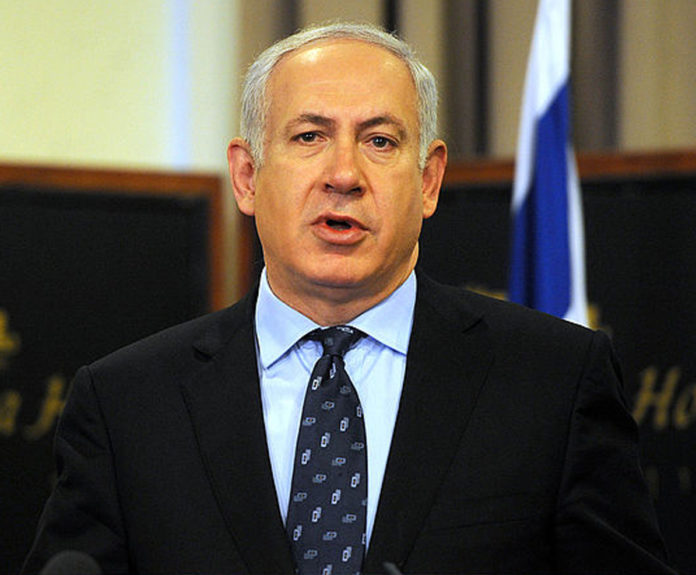
Israel’s Security Cabinet is persevering to halt hostilities on the Gaza border in spite of ongoing violence by Hamas.
Egyptian intelligence head, Abbas Kamel, and UN envoy to the Middle East, Nikolay Mladenov, are mediating negotiations.
Breaches of the security fence and launching of incendiary balloons from Gaza has led to warnings of “harsh measures” being taken by Israel against the terror organisation.
Cabinet ministers have urged Prime Minister Benjamin Netanyahu to act against Hamas.
Netanyahu and Defence Minister, Avigdor Lieberman have both stated Israel would inflict “very powerful” blows upon Hamas if violence did not cease.
Although the Israeli leader decided to wait until renewed negotiations with Hamas have occurred, he publicised his views on resolving matters at the weekly government meeting last Sunday.
“If they do not stop the violent attacks against us they will be stopped in a different way and it will be very, very painful,” he said.
Lieberman was of a similar viewpoint.
“We have turned every stone and have passed the point of no return,” he noted.
“We have reached the stage where we must deliver the hardest blow imaginable on Hamas.”
He added, “Hamas has turned the border violence into a strategic weapon, through which they hope to erode out deterrence and put pressure on both the Israeli public and the government.
“Hamas is determined to continue the violence until the blockade is fully lifted without reaching an agreement, especially regarding prisoner exchange, and without giving up on the main article in their charter, the destruction of the State of Israel.”
Gadi Yarkoni, Head of the Eshkol Regional Council, outlined what Gaza border communities experience.
“This black thick blanket of smoke covering our skies is unacceptable,” he said.
“This is a very serious situation, I call on the Defence Minister and Security Cabinet to take the right decisions.”
He added, “Gaza border communities’ residents are strong and prepared for another round (of fighting) to achieve an outcome.
“Fighting is not the end; it’s the means after which calm would be achieved.
“No sovereign country would have let this happen. The IDF must have the power to stop it.”
Local communities experienced several fires caused by incendiary balloons on Sunday.
Firefighters extinguished flames.
Further afield, flammable objects were found at open areas in Rishon LeZion, Bat Yam, Givat Brenner, Modi’in and in the vicinity of Jerusalem.
Fire officials are taking them seriously though to date, the incendiary devices are no longer burning as fuel is depleted.
Incidents, however, continue in the region.
An IDF spokesman confirmed aircraft attacked a terrorist cell launching incendiary balloons from the northern Gaza Strip last Sunday.
Two days earlier, around 15,000 Palestinians rioted along the border throwing burning tyres, rocks and explosive devices at IDF soldiers.
During clashes, a group of terrorists planted explosives, which partly exploded, allowing 20 terrorists to advance into Israel.
IDF snipers opened fire whereupon most of the terror group returned to the strip, but several of the terror group advanced undeterred.
Soldiers responded with crowd-dispersal means, killing the Palestinians according to rules of engagement, an IDF spokesperson said.
Palestinians took the bodies back across the border.
No injuries were reported among the IDF soldiers.
The violence meant that Lieberman stopped fuel tankers entering Gaza. He warned that fuel supplies to Gaza would remain cut whilst rioting continued on the border.
“Israel will not tolerate a situation in which fuel tankers are allowed into Gaza, while violence against IDF soldiers and Israeli citizens is being used,” he noted in a statement.
IDF personnel also destroyed a 15th terror tunnel in the past 12 months.
The kilometre-long tunnel, part Hamas’ network of attack tunnels, divided into branches with electricity and communication networks.
Around 200 Palestinians from the Gaza Strip have been killed since March of Return riots began six months ago.









